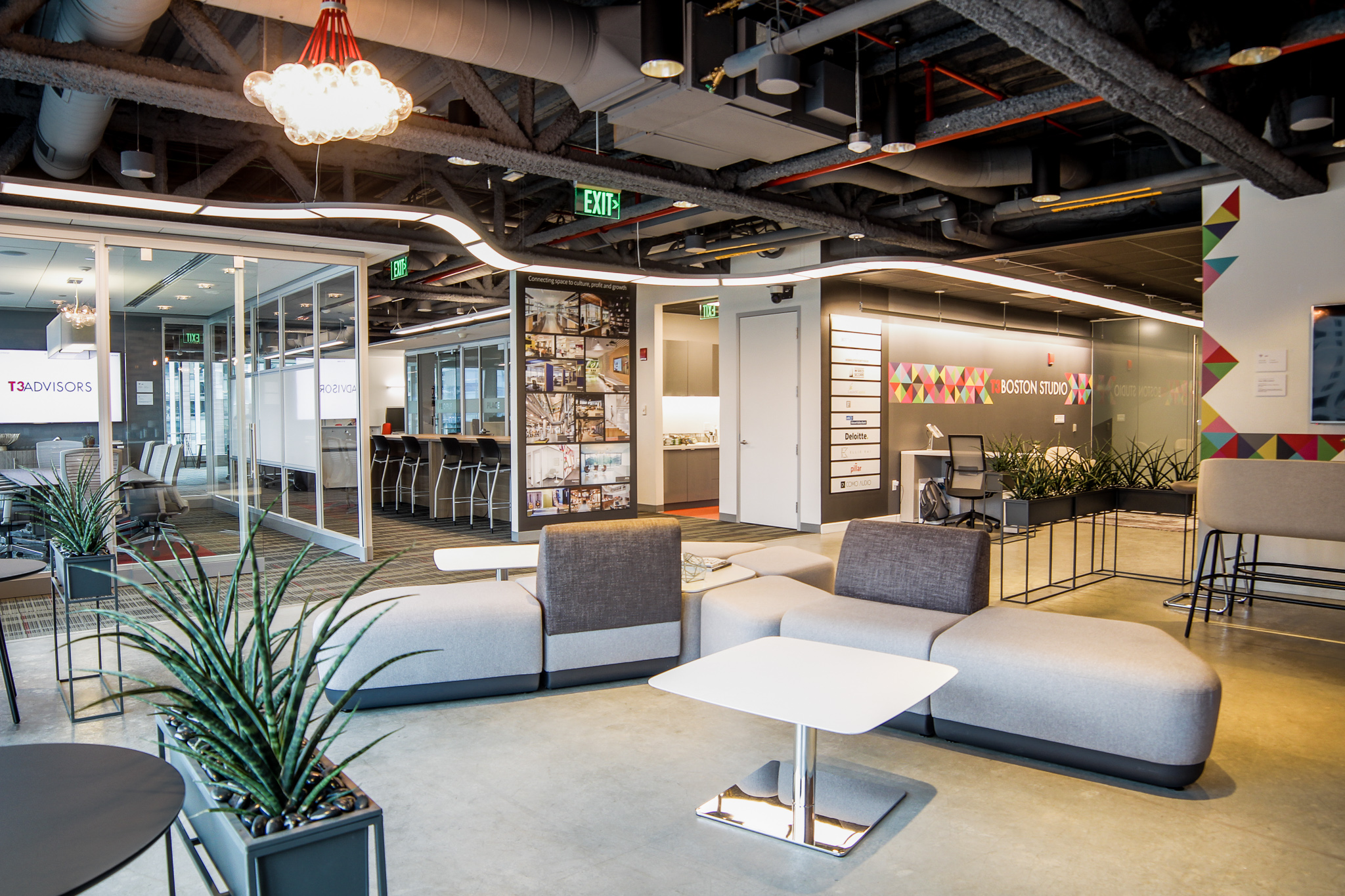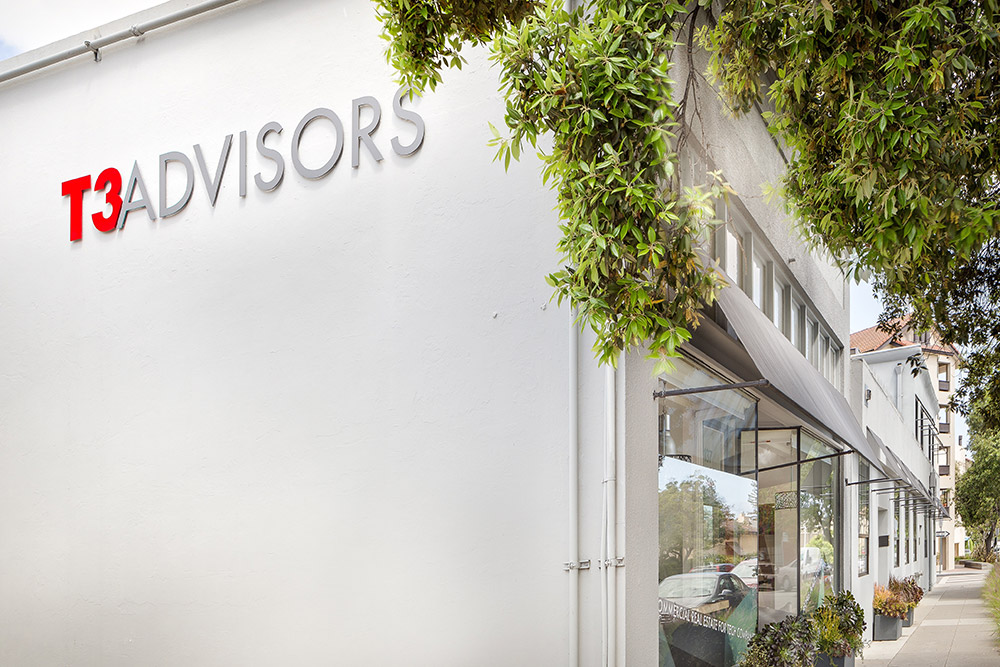T3 Advisors is a Boston-based commercial Real Estate firm that “uses real estate and workplace to unlock growth for the world’s most innovative companies.” The firm has a noteworthy client list that includes LinkedIn, HubSpot, General Catalyst, Autodesk, Doordash, Drizly, ASICS America, Carbon Black, and offices in the key innovation hubs of Boston, NYC, Palo Alto and San Francisco.
I recently interviewed T3 CEO Roy Hirshland to learn how their business and brand uses design thinking to facilitate growth, drive innovation and maintain happy customers.
Tell us about T3 Advisors. What does the firm do?
“T3 was founded in August 2001 to help innovative companies think about how to use real estate as a lever to grow their business. We’re a real estate company that helps innovators find the space that will help them grow. Real estate is a massive industry that can be difficult to navigate. It is one of the largest industries in the world when you include ownership, construction, development, leasing, and design of commercial and residential property. The old industry model is to be everything to everyone. We don’t want to do that. Instead, we focus solely on end-users, tenants, and we maintain clients all over the world. Our offices are based where innovation is formed and funded, including New York, Boston, and the Bay Area.”
Your clients are some of the most innovative and disruptive companies out there, and they’re coming to you for expertise on how [other] innovative client companies operate. They want to bring some of that secret sauce into their own culture and organization, right? What is your secret to continue being their trusted partner?
“A company's real estate is often the second highest expense to its people, and can have a profound impact on people and culture. We know that. What is unique about our firm is the way we bring together various elements of successful real estate decision making; location decisions, workplace behavior, design and deal negotiations.”
Real estate is a crowded space. How do you continue to differentiate T3 from the rest of the industry?
“Our focus on a specific type of customer has allowed us to build a very strong voice in certain communities of influence, like venture capital and entrepreneurship. We have an outsized brand in the communities and cities that we’ve focused on. Interestingly, some of these customers are from (what had been) non-traditional industries for T3. They’ve heard about us from entrepreneurs or from existing T3 customers.”

The lobby of T3 Advisors' Boston studio is one of many spaces built to “create community, nurture collaboration, and ignite innovation.” (T3 Advisors)
Authenticity is something people talk about but are afraid to really live by.
“When we first launched the T3 studio concept and built this space out five years ago, the concept of no one having an office or an assigned space was unheard of in the real estate services business. I would explain to other CEO’s why I personally don’t have an office and how and why it makes me a better CEO. Our space is one expression of T3’s brand story. We live in it, and we’re authentic to it.”
You used the phrase “design thinking for real estate.” How does your company view design thinking?
“From day one, we knew as consultants and service providers to users of real estate, our business had to begin and end with the customer and be built around a deep understanding of their evolving needs. The idea of listening to customers, iterating on product ideas, pivoting when you get feedback, and continuing to iterate… driving always toward what the customer is telling you… that is a really different approach [to real estate.] That’s what design thinking is all about.”
How do you apply design thinking to real estate?
“Like real estate, design thinking is inextricably linked to people. It has a material impact and it’s a mistake to decouple it from your human capital strategy. Brand is really the people, culture, and product, less than the communication. Space has always had a connection to the human condition.”
What do you foresee for the future of commercial real estate, based on current growing trends and market movement?
“Here are a few things I see:
- Companies are now starting to engage stakeholders in the conversation about their location and space earlier on. This may open up more funding for real estate as a company investment.
- Public infrastructure problems and the rise of enabled technology and connected spaces will continue to provoke employees to ask questions like, ‘How can I work from home on Fridays?’ The question for companies then will be, ‘How can I make a headquarters that becomes a touchdown place where people want to come and work, but perhaps in a more agile way?’
- The development of a community aspect within an office building (living/working/eating/fitness all-in-one building experience and open concept floor plans) will continue to drive demand in the commercial real estate market. Faceless, generic office towers that fail at this will be a thing of the past.
- The smartest companies will use data and technology to learn more about how spaces are used and pivot their business strategy accordingly, further integrating marketing and product development approaches.”

The window of T3 Advisors' Palo Alto studio display the company's focus, “Commercial real estate for tech companies” and “People, place, culture.” (T3 Advisors)
Do you have larger aspirations and dreams for the future of your industry?
“My hope and contribution is that entrepreneurship and innovation can be infused into every high school in America, every community… so that cities that were once dependent on old industries can now create new technology. I’m the Chair of BUILD in Boston, and am extremely passionate about using the power of entrepreneurship to change the lives of our youth.
It’s not just the ‘up and coming cities’ we should focus on; there are huge opportunities in many of the cities that have already arrived when you consider windows for innovation and technology that drive expansion in the commercial market. Take New York City, for example: the financial capital of the world, the advertising and fashion capital; it’s a newcomer to the technology venture scene. Right now I am incredibly excited about our NYC office and the future of tech and venture capital in that market. In fact, in many recent quarters, NYC surpassed Boston in terms of flow of venture capital into technology. Columbia and NYU grads (who at one time would have gone to work at Goldman,) who will now go to work for a startup. This is creating another burgeoning opportunity for tech and innovation that we’re excited to be a part of.”
Where is T3 going as a company?
“It’s true that we are all technology companies, whether we like it or not. T3 is going to be supporting innovation from the top down and delivering our products and services to customers via new technology and platforms. We keep asking ourselves, ‘What is our customer experience like and how do we enhance it?’”
______________________________
Roy Hirshland is the CEO and Co-Founder of T3 Advisors.
T3 Advisors provides real estate and workplace solutions for the world's most innovative companies.
David Knies is Chief Growth Officer at Essential Design.
Essential Design is a leading Innovation Strategy & Design consultancy. We work across the healthcare, consumer, and commercial industries, helping our clients conceive and drive to market comprehensive digital, physical, and service experiences.


